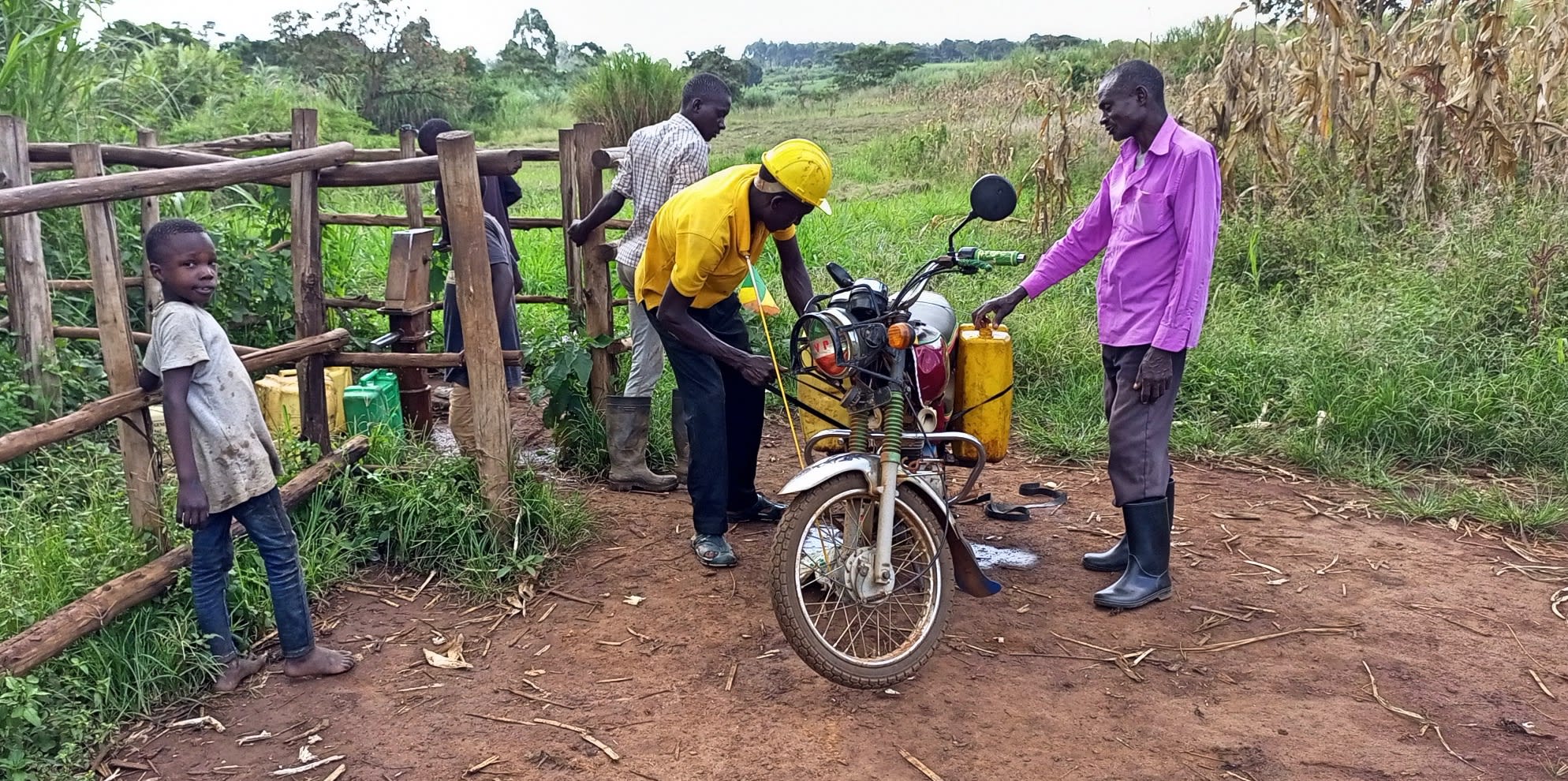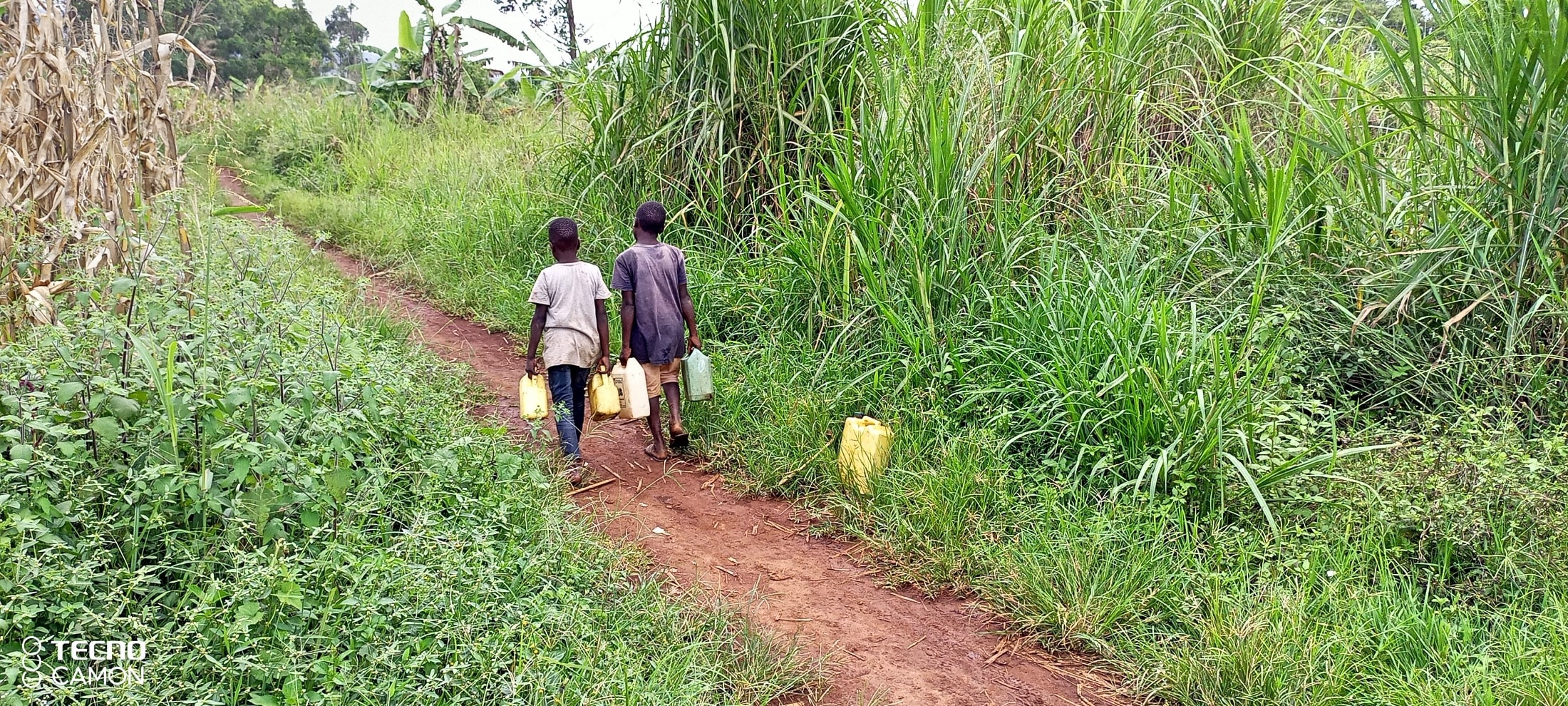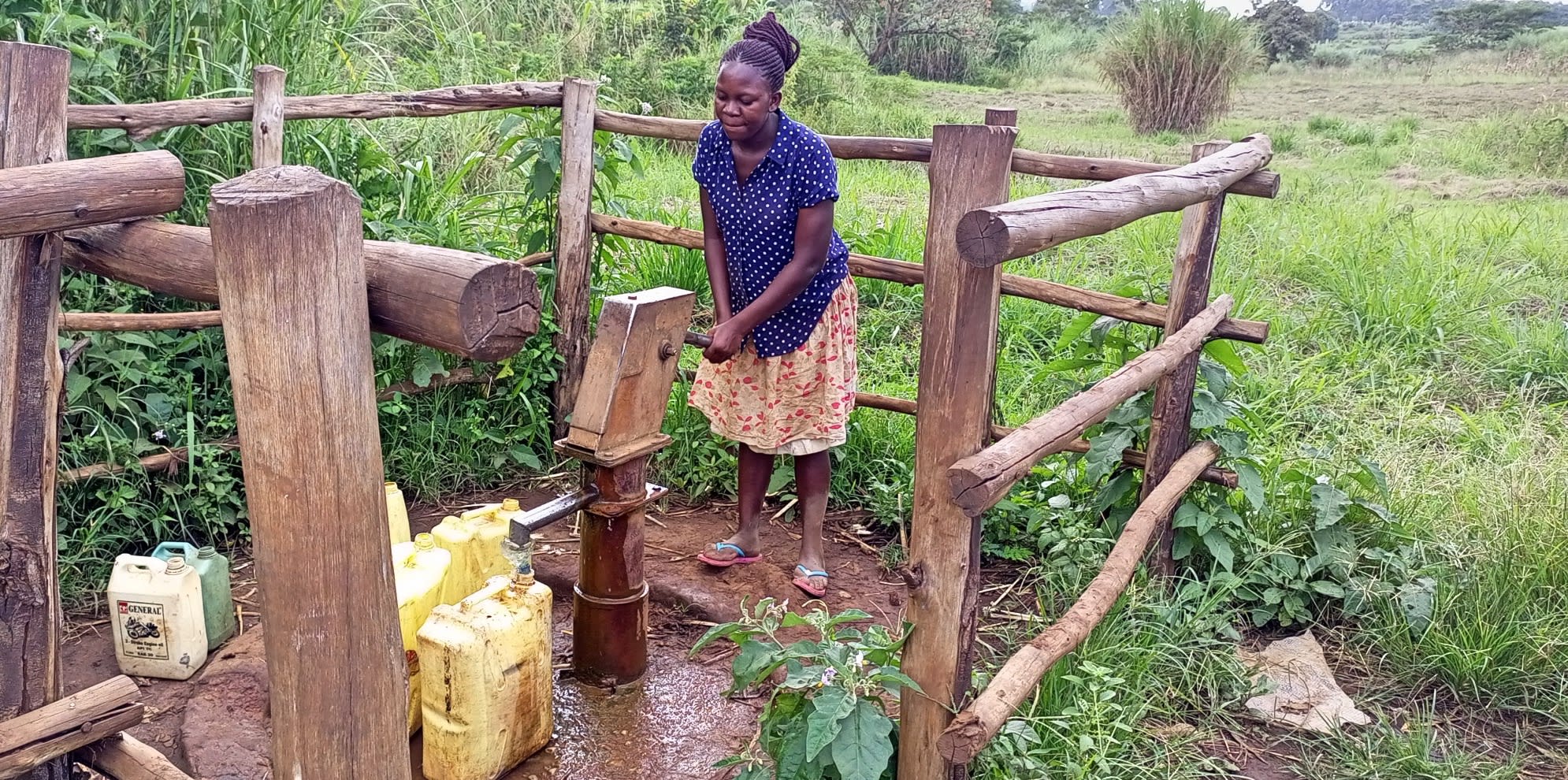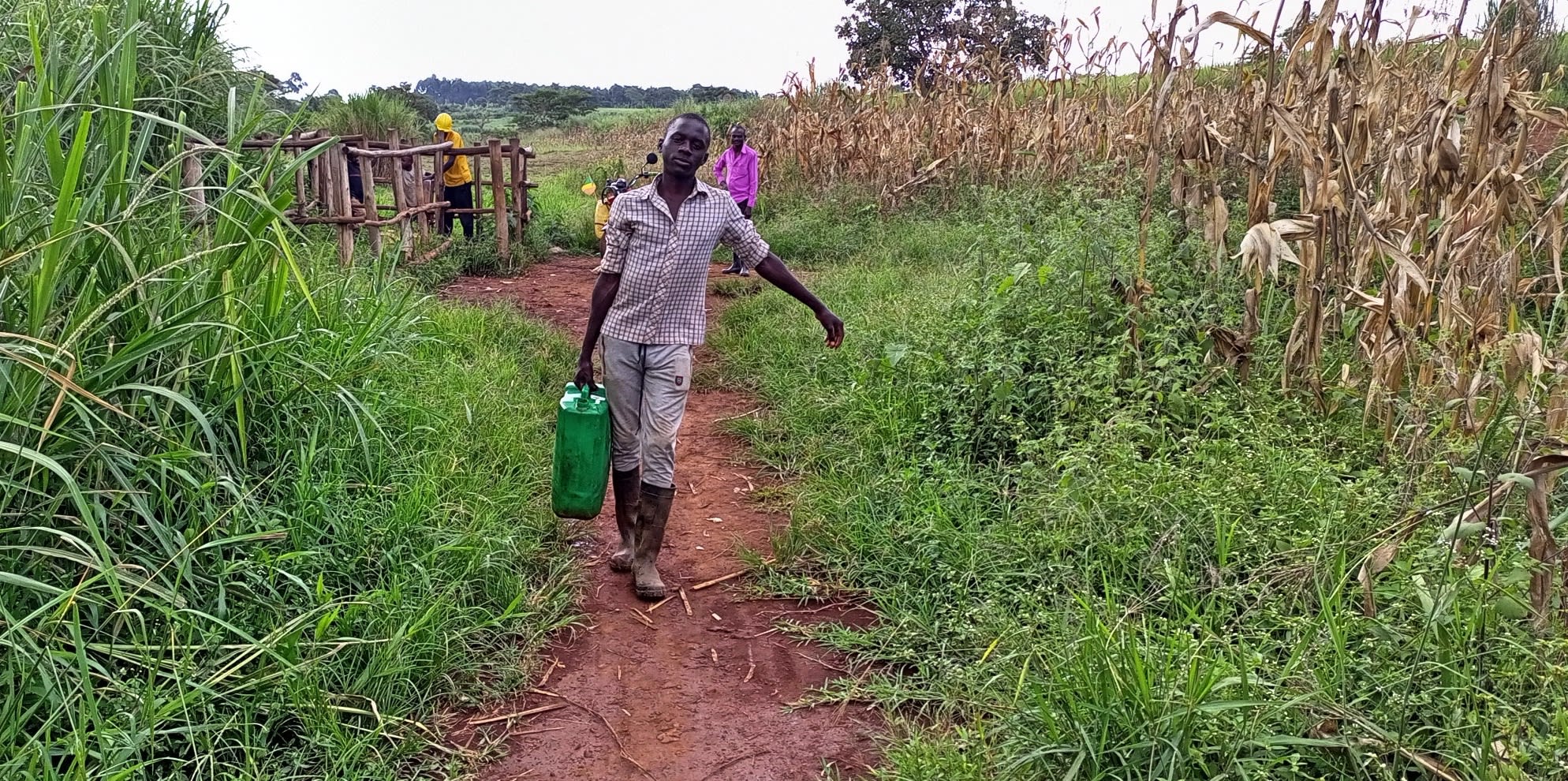The 600 people of Kiyonza-Kyamukudumi share one unprotected well with two other villages. For reference, our standard for the maximum amount of people who should be served by one well is 300. This one serves an estimated 1,200 people in all.

The overcrowding causes many problems. First among them is long wait times for each container of water, which, considering the long distance some people have to cover to even reach the well, spells disaster for people's everyday routines. Our field officers expressed concern, too, about the busy roads some young children need to cross in order to fetch water, as some of the farthest-away households require water-fetchers to walk for more than two hours roundtrip.

"The water point serving two villages causes congestion or long queues," said 24-year-old Juliet Asaba, a shopkeeper (in the photo below fetching water).

"Sometimes people end up fighting or quarreling, and this is caused by those who do not want to follow [the] order of first come, first served," Juliet continued. "When it rains, the water changes color, and it becomes hard to use it for drinking. This forces us to boil it. Yet even firewood is scarce, as all [the] forests where we used to get firewood were cut. I expect that the proposed project will help increase access to safe water."
Between walking, waiting, and boiling, community members here spend most of their waking hours just trying to get enough water to survive. Because firewood is scarce, people don't always boil the water. When they drink the water without treatment, they suffer from typhoid and diarrhea. Consequently, their farms and businesses suffer from a lack of attention, which hurts their incomes and stunts their ability to plan for the future.
"The waterpoint is distant and always crowded because it serves two villages," said 13-year-old Vincent (starting the long journey home in the photo below).

"The delays at the waterpoint sometimes affect my other plans like reading my [school] books," Vincent continued. "This affects my performance. Sometimes food is served late at home because there is no water, and this affects our productivity because not much work can be done on an empty stomach."
Note: Our proposed water point can only serve 300 people per day. We are working with the community to identify other water solutions that will ensure all 600 people in Kiyonza-Kyamukudumi community have access to safe and reliable drinking water.
Here’s what we’re going to do about it:
New Borehole
This new borehole is an exciting opportunity for this community! We work with the community to determine the best possible sites for this well.
We conducted a hydrogeological survey and the results indicated the water table is an ideal candidate for a borehole well. Due to a borehole well's unique ability to tap into a safe, year-round water column, it will be poised to serve all of the water needs for this community, even through the dry months.
Community members will help collect the needed construction materials such as sand, rocks, and water for mixing cement. They will also provide housing and meals for the work team, in addition to providing local laborers. We will complement their materials by providing an expert team of artisans and drilling professionals, tools, hardware, and the hand-pump. Once finished, water from the well will then be used by community members for drinking, handwashing, cooking, cleaning, and much more.
Training
Training’s main objectives are the use of latrines and observing proper hygiene practices since these goals are inherently connected to the provision of clean water. Open defecation, water storage in unclean containers and the absence of hand-washing are all possible contaminants of a household water supply. Each participating village must achieve Open Defecation Free status (defined by one latrine per household) prior to the pump installation for this borehole well.
This social program includes the assignment of one Community Development Officer (CDO) to each village. The CDO encourages each household to build an ideal homestead that includes: a latrine, a handwashing facility, a separate structure for animals, a rubbish pit and a drying rack for dishes.
We also implement the Community-Led Total Sanitation (CLTS) approach with each of our village partners. This aims to improve the sanitation and hygiene practices and behaviors of a village. During these sessions, village leaders naturally emerge and push the community to realize that the current practices of individual households – particularly the practice of open defecation – are not only unhealthy, but affect the entire village. CLTS facilitates a process in which community members realize the negative consequences of their current water, sanitation and hygiene behaviors and are inspired to take action. Group interactions are frequent motivators for individual households to build latrines, use them, and demand that other households do the same.
Improved Sanitation
The aim is that all households own an improved latrine. Many households do not use a latrine but use the bush. Due to open defecation, feces are spread all over the village. This leads to waterborne diseases and contamination of groundwater and surface water. Our aim is that the community is able to live a healthy life free of preventable diseases. We endeavor that at the end of our presence in the community, people will have both access to sustainable, clean water and access to sanitation. We have now organized families to form digging groups for latrine construction, and empowered them with tools to use.



 Rehabilitation Project
Rehabilitation Project




























